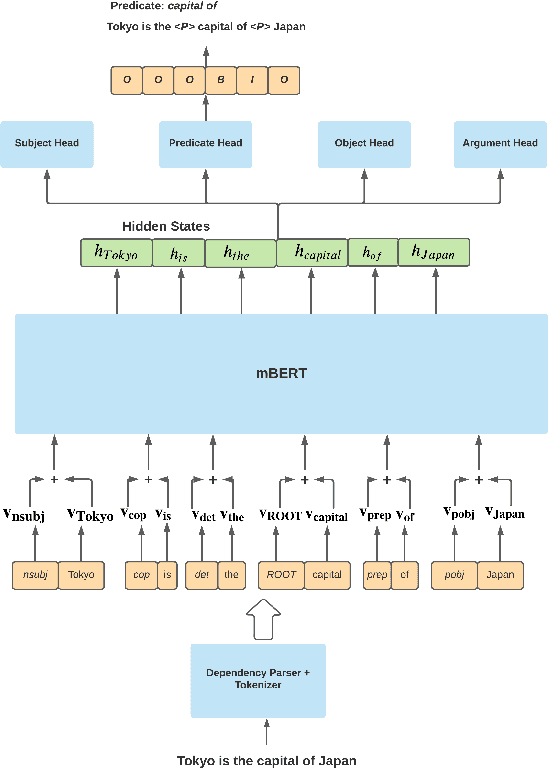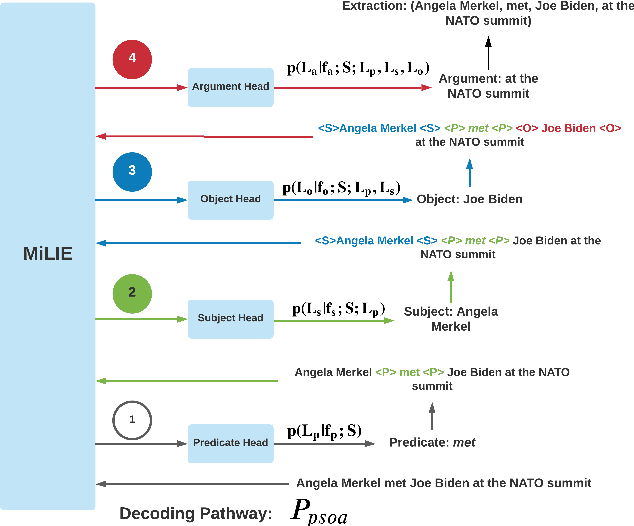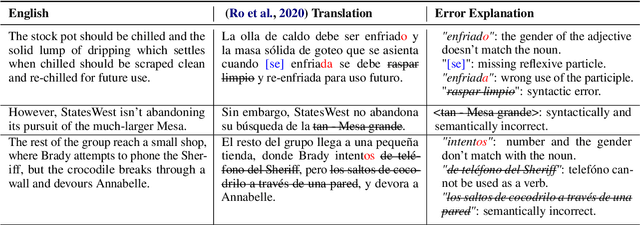Vanesa Rodriguez-Tembras
Integrating diverse extraction pathways using iterative predictions for Multilingual Open Information Extraction
Oct 15, 2021



Abstract:In this paper we investigate a simple hypothesis for the Open Information Extraction (OpenIE) task, that it may be easier to extract some elements of an triple if the extraction is conditioned on prior extractions which may be easier to extract. We successfully exploit this and propose a neural multilingual OpenIE system that iteratively extracts triples by conditioning extractions on different elements of the triple leading to a rich set of extractions. The iterative nature of MiLIE also allows for seamlessly integrating rule based extraction systems with a neural end-to-end system leading to improved performance. MiLIE outperforms SOTA systems on multiple languages ranging from Chinese to Galician thanks to it's ability of combining multiple extraction pathways. Our analysis confirms that it is indeed true that certain elements of an extraction are easier to extract than others. Finally, we introduce OpenIE evaluation datasets for two low resource languages namely Japanese and Galician.
 Add to Chrome
Add to Chrome Add to Firefox
Add to Firefox Add to Edge
Add to Edge